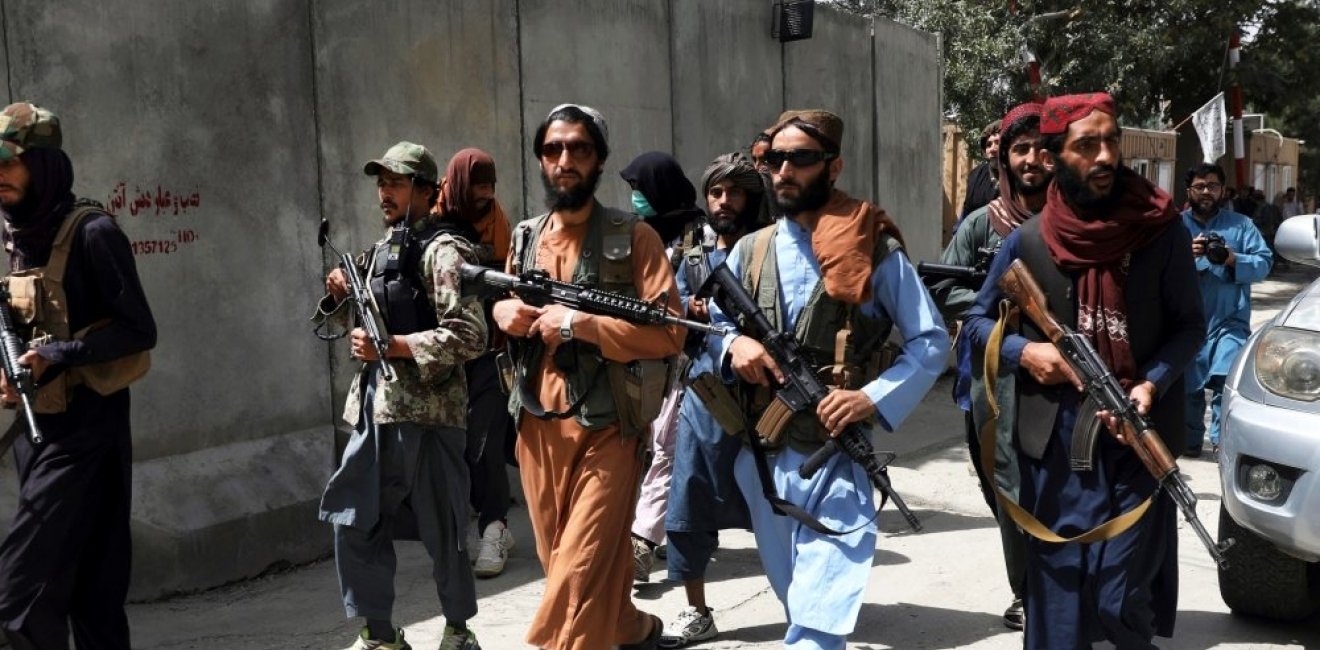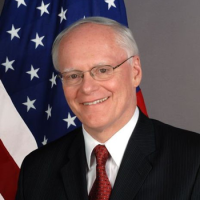The Threat of Terrorism In Afghanistan Post 2021
"Afghanistan: Two Years Later" is a special series for Asia Dispatches marking the two-year anniversary of the U.S. withdrawal and Taliban takeover of Afghanistan.

A blog of the Indo-Pacific Program
"Afghanistan: Two Years Later" is a special series for Asia Dispatches marking the two-year anniversary of the U.S. withdrawal and Taliban takeover of Afghanistan.

The possibility of terrorism operating in Afghanistan, threatening the stability—such as it is—of that country or neighbor Pakistan, American allies and partners, and the United States homeland, is the single biggest issue in evaluating the U.S. decision to withdraw from Afghanistan in 2021.
Certainly there have been no dramatic terrorist attacks sourced from Afghanistan since that time, although an uptick in terrorist and Islamic extremist activity in Pakistan may be traced to Afghanistan. President Biden in fact has cited the 2022 American strike against al-Qaida terrorist leader Ayman al-Zawahiri in Kabul as an example of the effectiveness of post-2021 over-the-horizon, as opposed to boots-on-the-ground, counterterrorism. On June 30 of this year he went further, noting help from the Taliban in tracking down the terrorist responsible for the August 2021 Kabul airport attack that killed 13 Americans and approximately 100 Afghans, while also claiming incorrectly that al Qaida no longer operates in Afghanistan.
While the absence so far of terrorism spreading from Afghanistan is encouraging, the threat posed by Islamic State-Khorasan (IS-K) and to a lesser degree al Qaida continues to haunt U.S. and UN officials. The U.S. Central Command (CENTCOM) Commander Michael Kurilla, in his 2023 CENTCOM Posture statement, highlighted this threat, noting that “in Afghanistan, the reduction in collection, analytical resources, and Intelligence, Surveillance, [and] Reconnaissance assets means our campaign against Al Qaeda and ISIS Khorasan is challenged; while we can see the broad contours of attack planning, we lack the granularity to see the complete threat picture. ISIS-Khorasan has increased attacks in the region and ….is building a capability in Afghanistan…with the ultimate goal of a strike on the American homeland.” The Command also sees Al Qaeda “remnants” there seeking to rebuild, but plays down the immediate threat compared to IS-K.
A range of terrorist groups have greater freedom of manoeuvre under the Taliban de facto authorities
The UN’s exhaustive May 2, 2023 “Fourteenth Report of the Analytical Support and Sanctions Monitoring Team” stresses that “the link between the Taliban and both Al-Qaida and Tehrik-e-Taliban Pakistan (TTP) remains strong and symbiotic. A range of terrorist groups have greater freedom of manoeuvre under the Taliban de facto authorities…and the threat of terrorism is rising in both Afghanistan and the region. While (the Taliban) have sought to reduce the profile of these groups and have conducted operations against Islamic State of Iraq and the Levant – Khorasan Province (ISIL-K), in general, the Taliban have not delivered on the counter-terrorism provisions under the Agreement for Bringing Peace to Afghanistan between the United States of America and the Taliban. There are indications that Al-Qaida is rebuilding operational capability, that TTP is launching attacks into Pakistan with support from the Taliban, that groups of foreign terrorist fighters are projecting [a] threat across Afghanistan’s borders and that the operations of ISIL-K are becoming more sophisticated and lethal (if not more numerous).” The UN further notes that it is too early to assess the 2022 Taliban decree forbidding attacks from Afghanistan into Pakistan.
This “glass have full/empty” assessment of terrorism in Afghanistan reflects the resilience and global spread of Islamic terrorist groups. The resilience of the IS-K element in particular is remarkable. After having survived years of pounding by U.S. forces, it is unlikely to collapse under Taliban pressure. Whether, and how soon, it can reconstitute to the degree that it can strike the U.S. homeland is another question. Certainly the U.S. is concerned about ISIS’s overall survival, including its continued presence in those areas of Syria more or less under the Assad regime’s responsibility, as well as the tens of thousands of ISIS detainees and family members, almost universally still indoctrinated in the ISIS ideology, in camps in northeast Syria and Iraq. ISIS’s continued strength in the African Sahel region, likely profiting from the recent Niger coup’s deleterious impact on U.S. and French-led counterterrorism operations, is worrisome. To be sure, ISIS geographic “franchises” operate independently, but the success of any one branch has political advantages for the entire organization.
The United States entered Afghanistan in 2001 with the mission of eradicating the international terrorism threat there, and remained on with an ambitious nation-building mission.
The United States entered Afghanistan in 2001 with the mission of eradicating the international terrorism threat there, and remained on with an ambitious nation-building mission. The Trump and then Biden administrations understood that the U.S. and its international partners had failed definitively in the second mission, but believed that they had accomplished the first, and more important, counterterrorism mission, at least sufficiently to justify troop withdrawals and the current over-the-horizon counterterrorism policy with some cooperation with the Taliban.
But the problem for Washington remains acute for two reasons. One is the aforementioned resilience of terrorist groups, in particular ISIS. The other is the inherent nature of terrorist threats. Islamic terrorist organizations understand the benefits of, and thus prioritize, major terrorist attacks against the outside world, be it 9/11 or the 2015 ISIS strikes in Paris and on a Russian airliner over the Sinai. Those latter attacks, launched just two years after ISIS’s founding in Syria, and costing over 350 lives, were totally unexpected.
Washington only has to drop the ball on one pending major IS-K international attack, and the Afghan withdrawal decision will be seen as a tragic blunder with dramatic domestic and international fallout for the U.S.
Ambassador James F. Jeffrey is chair of the Wilson Center’s Middle East Program and the former U.S. Special Envoy to the Global Coalition to Defeat ISIS.


The Indo-Pacific Program promotes policy debate and intellectual discussions on US interests in the Asia-Pacific as well as political, economic, security, and social issues relating to the world’s most populous and economically dynamic region. Read more


The Wilson Center’s Middle East Program serves as a crucial resource for the policymaking community and beyond, providing analyses and research that helps inform US foreign policymaking, stimulates public debate, and expands knowledge about issues in the wider Middle East and North Africa (MENA) region. Read more
